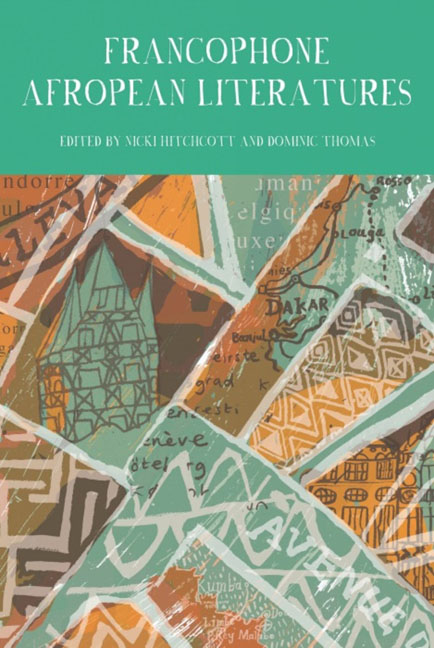Introduction: Francophone Afropeans
Summary
Barely a decade had elapsed since the British Parliament established the Race Relations Act 1976 (itself an amendment of earlier parliamentary acts) and the Commission for Racial Equality, with the specific objective of targeting discrimination on the grounds of race, when Paul Gilroy drew attention in his landmark publication There Ain't No Black in the Union Jack: The Cultural Politics of Race and Nation (1987) to the resilience in the public imaginary of the symbiotic link between Britishness and whiteness. More recently, in Color Me English: Migration and Belonging Before and After 9/11, British novelist Caryl Phillips wrote: ‘For a large part of my life I grew up feeling that the real divisive factor in British, and by extension European, life was race; that it was race that was keeping us separate from each other, and that racism had made the greatest contribution to inequity of opportunity in modern Britain’ (Phillips, 2011: 7). Meanwhile, across the Channel in France, where the French Republic remains one and indivisible as enshrined in the first constitution of 1791 (a principle that underscores the commitment to protecting the rights of all citizens regardless of ethnicity, religion or other social associations), the persistent juxtaposition of ‘insiders’ and ‘outsiders’ remains a common feature in political discourse, such that, as Achille Mbembe has argued, ‘The perverse effect of this indifference to difference is thus a relative indifference to discrimination’ (Mbembe, 2011: 93). Interestingly enough, the European Union itself has struggled to define its identity. Though conceptualized as ‘a family of democratic European countries, committed to working together for peace and prosperity’, current economic, social and political debates invariably leave observers pondering what Europe really is, to what degree family resemblances are to be found, and in turn how this community has undertaken the challenging process of imagining itself in the twenty–first century.
The idea of Black Europe introduces a range of specific notions which this book will endeavour to elucidate. As Barnor Hesse has written, ‘The complexities of thinking through figurations of Black Europe arise from its being irreducible to the fixed terms of either Europe or non–Europe in the classical metropole and colony schema’ (Hesse, 2009: 301).
- Type
- Chapter
- Information
- Francophone Afropean Literatures , pp. 1 - 14Publisher: Liverpool University PressPrint publication year: 2014



